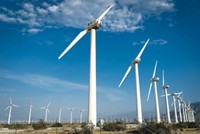Advertisement
Grab your lab coat. Let's get started
Welcome!
Welcome!
Create an account below to get 6 C&EN articles per month, receive newsletters and more - all free.
It seems this is your first time logging in online. Please enter the following information to continue.
As an ACS member you automatically get access to this site. All we need is few more details to create your reading experience.
Not you? Sign in with a different account.
Not you? Sign in with a different account.
ERROR 1
ERROR 1
ERROR 2
ERROR 2
ERROR 2
ERROR 2
ERROR 2
Password and Confirm password must match.
If you have an ACS member number, please enter it here so we can link this account to your membership. (optional)
ERROR 2
ACS values your privacy. By submitting your information, you are gaining access to C&EN and subscribing to our weekly newsletter. We use the information you provide to make your reading experience better, and we will never sell your data to third party members.
Environment
Extreme Risk
U.K. study lays out grave dangers of exceeding thresholds of global warming
by Bette Hileman
February 1, 2006
The risks of global disasters because of climate change may be much greater than previously believed, says a report issued by the U.K. Meteorological Office. It expresses concern that the world may be nearing temperature-change thresholds that could trigger irreversible effects. The study summarizes government-sponsored research presented at a conference last February.
The document, "Avoiding Dangerous Climate Change," presents evidence that the Greenland ice cap may already be melting and that a local increase of 2.7 °C over today's average temperature in Greenland "may be a threshold that triggers" irreversible melting of the ice cap. If the ice cap melts completely, sea level would rise 7 meters, inundating most of the world's coastal cities. Such a temperature increase is well within the range of climate-change projections for the century. According to the "Third Assessment Report" of the UN Intergovernmental Panel on Climate Change, the average global temperature is expected to rise between 1.4 and 5.8 °C by 2100.
A global increase of 1 °C is likely to lead to extensive coral bleaching, vastly disrupting marine ecosystems, the report says. It noted recent studies showing that the ocean is already more acidic because of its absorption of excess carbon dioxide from the atmosphere. "This is likely to reduce the ocean's capacity to absorb carbon dioxide from the atmosphere and affect the entire marine food chain," the study says.
The document notes that an increase of 3 °C could reverse the land carbon sink—that is, release carbon from forests and permafrost—and destabilize the Antarctic ice sheets.
The study reports that technological options—such as energy efficiency, nuclear energy, and renewable transport fuels—for making large reductions in emissions over the long term already exist. “There are no magic bullets,” the report says, noting that excluding any option will increase costs of cutting emissions.
The report can be found at www.metoffice.gov.uk




Join the conversation
Contact the reporter
Submit a Letter to the Editor for publication
Engage with us on Twitter